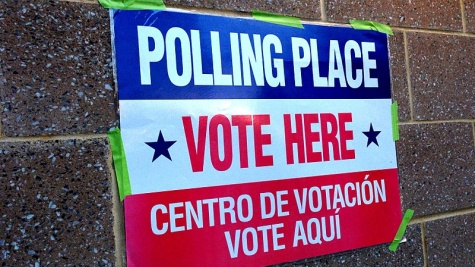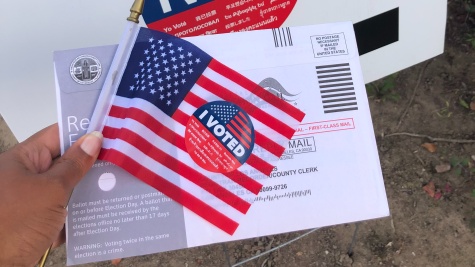Why Georgia, Why?
Peach State Residents’ Perceptions of Voting-Related Improprieties and Their Impact on the 2018 Gubernatorial Election
The MIT Election Data and Science Lab helps highlight new research and interesting ideas in election science, and is a proud co-sponsor of the Election Sciences, Reform, & Administration Conference (ESRA).
M.V. Hood III and Seth C. McKee recently presented a paper at the 2019 ESRA conference entitled, “ Why Georgia, Why? Peach State Residents’ Perceptions of Voting-Related Improprieties and Their Impact on the 2018 Gubernatorial Election.” Here, they summarize their analysis from that paper.
The 2018 gubernatorial election in Georgia was nothing short of a barn-burner, with white Republican Brian Kemp pitted against black Democrat Stacy Abrams. In the end, Kemp avoided a run-off by 0.22% of the total vote.
Throughout the campaign there were charges of voter suppression lobbed against Kemp, the sitting chief elections officer for the state. Abrams staked her campaign on a strategy of mobilizing a progressive coalition of typically disaffected voters, many of whom had not previously participated.
In the face of these voter suppression allegations, the Kemp campaign defended his record as Secretary of State, emphasizing his role in expanding citizen access to the franchise. Perhaps unparalleled in recent history, issues related to voting related improprieties completely dominated the 2018 Georgia gubernatorial race. These issues included registration purging, the security of Georgia’s election system, and regulations surrounding voter registration.
In this study, we use a statewide pre-election survey of 1,091 likely Georgia voters to assess opinions of voting-related concerns during the 2018 general election. Respondents were asked about the likelihood of the following scenarios occurring during the 2018 election:
- Many votes will actually not be counted.
- Someone will tamper with Georgia’s voting system.
- Many people will show up to vote and be told they are not eligible.
- There will be voter fraud, that is, people who are not eligible will vote.
We use a multivariate statistical model to examine the relationship between these opinions and correlates like race, party affiliation, age, and gender. We also model the effects that these concerns had on a respondent’s gubernatorial vote choice.
Our results indicate that Democrats are significantly more likely to perceive a higher incidence of votes not being counted, tampering, and voters deemed to be ineligible. Conversely, Democrats indicated a lower likelihood of voter fraud. This last finding is in line with the national narrative where Republicans view voter fraud as a much higher probability than Democrats. Interestingly, however, black voters in Georgia (most of whom are Democrats,) were more likely than white voters to perceive voter fraud as a potential problem in 2018. This is counter to the usual position on this issue, but in the context of Kemp serving as Secretary of State this finding is not surprising. In order to test the effects of these voting-related concerns on vote choice we created an additive index. Using a multivariate model, we find that the higher scores on this index (0–12) are positively and significantly related to voting for Democratic candidate Stacey Abrams. The probability of voting for Abrams ranged from a low of 0.38 (0 on the index) to a high of 0.52 (12 on the index).
Our study reveals that likely voters are polarized in their perceptions of voting-related improprieties in alignment with their partisan proclivities and their views on this issue directly influenced their preferences for governor. In the immediate context of the 2018 Georgia gubernatorial election, the relationship between the issue of voting-related improprieties and vote choice was enhanced by the fact that the Republican candidate refused to recuse himself as the sitting Secretary of State (with authority over Georgia’s election administration), while his Democratic opponent had risen to prominence through her success in mobilizing minority registration.


